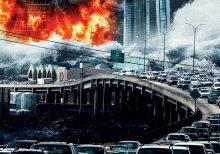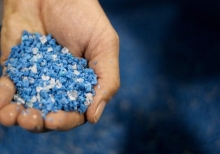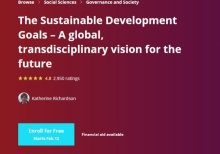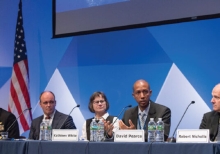Welcome To The Age Of Climate Migration (Explicit Language)
Politicians inevitably vow to rebuild, to make their city stronger than before. But in the coming years, as the climate gets hotter, the seas keep rising and storms grow more intense, those vows will become less and less credible. Climate change is going to remap our world, changing not just how we live but where we live. As scientist Peter Gleick, co-founder of the Pacific Institute, puts it, "There is a shocking, unreported, fundamental change coming to the habitability of many parts of the planet, including the U.S.A.





